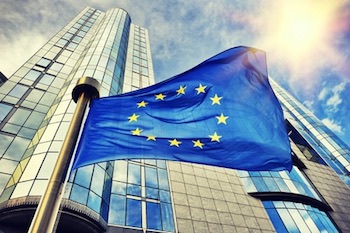 The new European Community Trade Mark Regulation, as approved by Regulation (EU) 2015/2424 of the European Parliament, entered into force on March 23, 2016. Among other amendments, the provisions of Article 28(8) of the new Regulation substantially change the approach to interpretation of ICGS class headings included in the list of goods/services covered by EU trademarks applied for before June 2012. Previously, before June 22, 2012, a trade mark was deemed to be protected in respect of the entire range of ICGS goods and services included in the alphabetical list for that class provided that such trade mark was registered with reference to the heading of the respective ICGS class.
The new European Community Trade Mark Regulation, as approved by Regulation (EU) 2015/2424 of the European Parliament, entered into force on March 23, 2016. Among other amendments, the provisions of Article 28(8) of the new Regulation substantially change the approach to interpretation of ICGS class headings included in the list of goods/services covered by EU trademarks applied for before June 2012. Previously, before June 22, 2012, a trade mark was deemed to be protected in respect of the entire range of ICGS goods and services included in the alphabetical list for that class provided that such trade mark was registered with reference to the heading of the respective ICGS class.
So far, this approach has not been supported by the national legislation of many European countries. Thus, provisions saying that the class heading covered only those goods and services that were clearly included in the literal meaning of such heading rather than the entire range of goods/services included in the alphabetical list for that class were contained in the subordinate legislation of the UK and Denmark. Ukraine is also among the countries which have legislatively imposed the aforementioned principle. According to the Ukrainian trade mark laws, the scope of legal protection is determined by the representation of the mark and the list of goods and services included in the register. This means that a trade mark is deemed protected only in respect of those goods/services that were expressly indicated at the time of its registration. If, at the time of registration, reference is made only to a specific ICGS class heading, the legal protection only extends to the goods/services covered by the literal meaning of such heading.
To add to that, EU patent offices may apply different approaches to the interpretation of class headings. Although such headings often include very broad terms, the national patent offices of such countries as Ukraine, Greece, Denmark, Cyprus, Latvia, Lithuania, Belgium, the Netherlands, Luxembourg (the Benelux), Romania, France and the Czech Republic, accept such lists for registration. As to such EU countries as Austria, Poland, Hungary, Bulgaria, Ireland, Spain, the UK, Italy, Slovakia, Slovenia, Portugal, Finland, Croatia, Sweden and Estonia, their patent offices apply a more scrupulous approach to class headings. They do not accept all terms and usually request a more specific list. For instance, if one applies to the UK Patent Office seeking legal protection for a trade mark covering “Machines and machine tools” (the heading of ICGS Class 07), the Patent Office will request that the applicant provide a more specific list of such machines and machine tools: “internal grinding machines, nut-tapping machines, asphalt laying machines, concrete finishing machines”. Therefore, a more careful approach should be adopted when making a list of goods/services for the purpose of obtaining legal protection for a trade mark in EU countries.
The new Regulation provides proprietors of EU trade marks applied for before June 22, 2012 with the possibility to adjust their lists of declared goods/services. That is why we recommend that during the next few months owners of European brands should go over their portfolios of trade marks applied for before 2012. Should the proprietor notice that the declared class heading does not include the goods/services that need to be protected, the proprietor must hurry to file a declaration seeking to include such goods/services in the list by September 24, 2016. The filing of such declaration will help to “correct the mistakes of the past” and protect the trade mark in respect of the relevant goods/services.
Image Source Image Source 123RF.com ID 47674413 © Paul Grecaud

![[IPWatchdog Logo]](https://ipwatchdog.com/wp-content/themes/IPWatchdog%20-%202023/assets/images/temp/logo-small@2x.png)

![[Advertisement]](https://ipwatchdog.com/wp-content/uploads/2024/04/UnitedLex-May-2-2024-sidebar-700x500-1.jpg)
![[Advertisement]](https://ipwatchdog.com/wp-content/uploads/2024/04/Artificial-Intelligence-2024-REPLAY-sidebar-700x500-corrected.jpg)
![[Advertisement]](https://ipwatchdog.com/wp-content/uploads/2024/04/Patent-Litigation-Masters-2024-sidebar-700x500-1.jpg)

![[Advertisement]](https://ipwatchdog.com/wp-content/uploads/2021/12/WEBINAR-336-x-280-px.png)
![[Advertisement]](https://ipwatchdog.com/wp-content/uploads/2021/12/2021-Patent-Practice-on-Demand-recorded-Feb-2021-336-x-280.jpg)
![[Advertisement]](https://ipwatchdog.com/wp-content/uploads/2021/12/Ad-4-The-Invent-Patent-System™.png)






Join the Discussion
No comments yet.